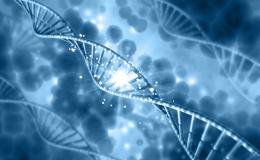Several Relatives Have the Same Cancer? That Doesn’t Mean it’s Hereditary.
July 14, 2020
A cancer diagnosis is often a devastating experience for a patient and their family. Multiple cancer diagnoses in the same family are no exception, and often prompt physicians and concerned family members to question whether or not their cancer is hereditary, or passed from an affected parent on to their child.

Take, for instance, Susan’s family from North Carolina. Susan was diagnosed with breast cancer at the age of 59. Her middle sister was also diagnosed with breast cancer and her oldest sister was diagnosed with both breast and uterine cancer. Susan’s parents additionally died of cancer in their 60s: her mother died of brain cancer and her father died of adult leukemia. Susan’s oldest brother died of melanoma in 2012 at the age of 53. Her youngest brother developed non-Hodgkin lymphoma at the age of 45. In total, seven of Susan’s eight family members have been diagnosed with cancer.
Mark’s family, too, has been disproportionately affected by cancer. His Colorado family has had 16 members diagnosed with cancer, ten of which have died. His father died at the age of 69 and Mark’s cousin died at the age of 54, both from kidney cancer. One female cousin died from breast cancer at the age of 38. Mark’s relatives with cancer diagnoses include uncles, aunts, grandparents, parents and cousins, and notably, five of the family cancer deaths were due to kidney cancer.
The prevalence of cancer diagnoses in Susan’s and Mark’s families is striking. Research has shown, however, that about 80% of cancers are considered sporadic cases that are caused by environmental, lifestyle or other factors, such as exposure to tobacco smoke, viruses and various chemicals, that family members may inherently experience similar exposures to. Sporadic cancers are caused by an accumulation of many adverse changes in genes that carefully control cell growth and division, eventually allowing a noncancerous cell to become cancerous and divide uncontrollably.
Hereditary cancer, in contrast, accounts for about five to ten percent of all cancers and hereditary cancer gene mutations, passed from an affected parent to their child, are present in every cell of the body. Hereditary cancer gene mutations predispose an affected child to develop cancer because genes responsible for controlling cell growth or division are compromised from birth. Additional gene mutations that an affected individual accumulates over time may then push a noncancerous cell to a cancerous state, typically at a younger age (under 50) than sporadic forms of cancer. Hereditary cancer syndromes are most often observed on one side of a family tree since they are uncommon and pass from an affected parent to their child. Additionally, individuals with hereditary cancer syndromes may develop rarer cancers and may form cancers in more than one place in the body.
Despite the high cancer prevalence in both families, neither Susan’s nor Mark’s families’ cancers were hereditary. Both families cancers were instead most likely caused by unsafe exposures to chemicals in drinking water that have been linked to cancer: high levels of the solvent TCE were present in Susan’s family’s water and excessive levels of the chemicals PFAS and PFOA contaminated Mark’s family’s water. Susan states there is no genetic link to breast cancer in her family. Her family was exposed to TCE when the family resided at Camp Lejeune, a military base in Jacksonville, North Carolina, where the tap water was contaminated with unsafe levels of TCE between the years of 1952 and 1987. Mark’s affected family members all lived near Peterson Air Force Base, near Colorado Springs, where drinking water was contaminated with PFAS and PFOA, which were components of the military’s firefighting foam until 2018.
Both of our case studies illustrate that a family history of cancer does not necessarily indicate that cancers are hereditary. Because families are often exposed to the same environmental factors that may contribute to cancer development, it can be difficult to discern between sporadic and inherited forms of the disease. Fortunately, hereditary cancer tests such as the Kailos Genetics ExpedioTM Hereditary Cancer Screening analyze patient DNA for adverse mutations in a panel of genes associated with hereditary cancer, allowing patients to better understand their genetic predisposition to cancer and respond effectively to that risk. Click here to learn more about ExpedioTM or contact us with any questions you have regarding hereditary cancer or our screening tests.




